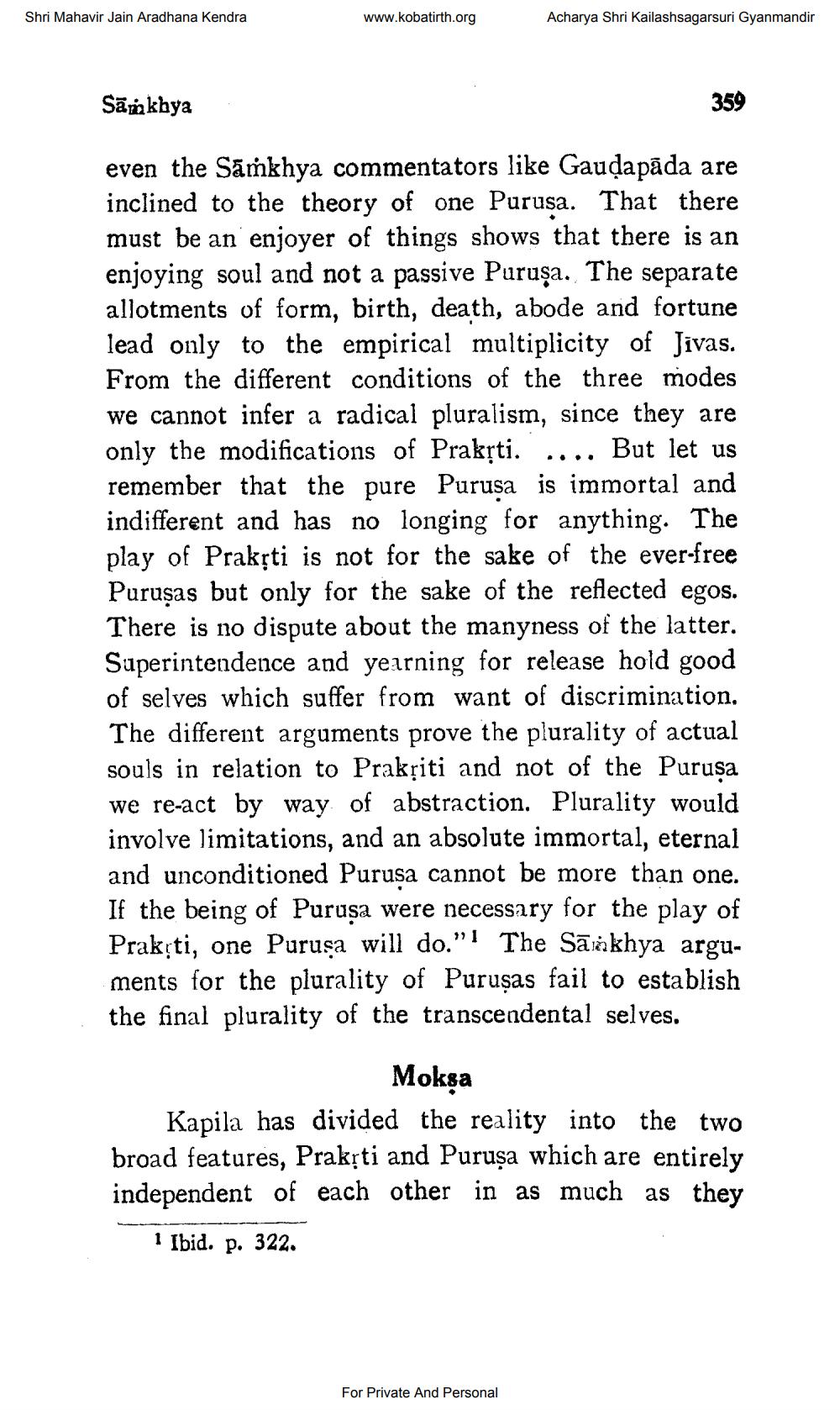________________
Shri Mahavir Jain Aradhana Kendra
www.kobatirth.org
Acharya Shri Kailashsagarsuri Gyanmandir
Samkhya
even the Samkhya commentators like Gauḍapada are inclined to the theory of one Purusa. That there must be an enjoyer of things shows that there is an enjoying soul and not a passive Purușa. The separate allotments of form, birth, death, abode and fortune lead only to the empirical multiplicity of Jivas. From the different conditions of the three modes we cannot infer a radical pluralism, since they are only the modifications of Prakṛti. But let us remember that the pure Purusa is immortal and indifferent and has no longing for anything. The play of Prakṛti is not for the sake of the ever-free Purusas but only for the sake of the reflected egos. There is no dispute about the manyness of the latter. Superintendence and yearning for release hold good of selves which suffer from want of discrimination. The different arguments prove the plurality of actual souls in relation to Prakriti and not of the Puruşa we re-act by way of abstraction. Plurality would involve limitations, and an absolute immortal, eternal and unconditioned Purusa cannot be more than one. If the being of Purusa were necessary for the play of Prakyti, one Puruşa will do." "The Sankhya arguments for the plurality of Purusas fail to establish the final plurality of the transcendental selves.
For Private And Personal
359
....
Mokṣa
Kapila has divided the reality into the two broad features, Prakṛti and Puruşa which are entirely independent of each other in as much as they
1 Ibid. p. 322.




